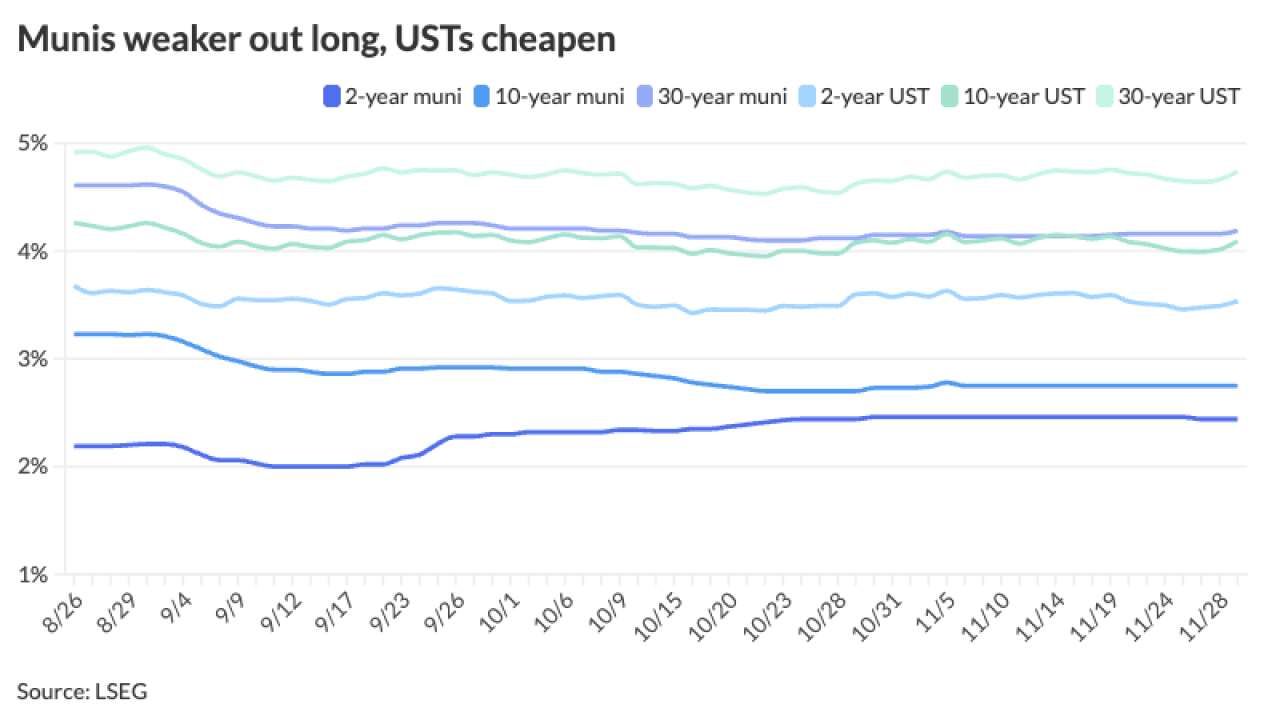
DALLAS – With nearly all of its top officials under indictment, the South Texas town of Crystal City is working to restore its water supply as its school district seeks to stave off closure by state officials.
The town that calls itself the "Spinach Capital of the World" is in a virtual political collapse since the Federal Bureau of Investigation arrested the mayor and four other officials on Feb. 4 on charges of taking thousands of dollars in bribes in support of a gambling operator known as "Mr. T."
The alleged gambling operator, Ngoc Tri Nguyen, also a former council member, was arrested along with mayor Ricardo Lopez, city attorney William Jonas, mayor pro tempore Rogelio Mata, council member Roel Mata and former council member Gilbert Urrabazo. Another councilman, Marco Rodriguez, has already been charged separately on alleged smuggling of Mexican immigrants.
The indictments and arrests were part of an ongoing federal investigation of corruption in South Texas.
Jonas, a former Republican lobbyist, doubled as the city manager while also working as city attorney, earning $216,000 per year, plus a car allowance. According to the San Antonio Express, Jonas' salary represented nearly half of the city's $500,000 per year in property tax receipts. Jonas previously spent two months in jail for failure to pay child support payments, according to the San Antonio Express.
Anger over Jonas' salary and a proposed tax increase led to a recall petition against the mayor and city council before the indictments were delivered.
The one councilman not indicted, Joel Barajas, told reporters that he was often denied access to information when he raised questions about the city's finances.
At city council meetings Jonas defended his work for the city, noting various improvements and settlement of a tax dispute with the Internal Revenue Service involving the city's for-profit detention center.
The federal indictment accused the city officials of taking bribes for awarding contracts to an unnamed engineer and contractor.
"This case represents our continuing commitment to investigate and punish those who corrupt the process of fair and open government, and to root out the corrosive effect of government officials who sell their office and the public trust they hold for their personal gain," said United States Attorney Richard L. Durbin, Jr. in a statement on the arrests.
While the city does not appear to have any outstanding bonds, it relies on state and federal grants for major projects such as water supply.
The problem with the water came to the public's attention when the Crystal City schools superintendent Imelda Allen discovered a strange odor and color in tap water coming out of her sister's faucet last week.
With all but one of the city's leaders under indictment, Allen realized she would have to take the leadership in dealing with the water problem, which also affected the schools.
City residents, who described the water as having the color and texture of crude oil, said they received no official notification of the problem until the schools closed early and truckloads of bottled water arrived.
"We didn't get a proper warning," Crystal City resident Nora Flores-Guerrero told San Antonio television station KSAT. "They didn't post anything or send out any type of message to warn the residents. It was pretty scary."
The city blamed the problem on its elevated tank that was drained Feb. 17, causing sediments and deposits that had accumulated at the bottom of the tank to flow through distribution lines. Videos shot on cell phones show fire hydrants flushing out dark water. Others showed a bathtub and a sink full of the oily-looking water with the taps flowing.
The Texas Commission on Environmental Quality suggested that people in the town continue to boil water until tests could be completed on what chemicals or microbes might be in the pipeline.
Carlos Ramierez, the city's water superintendent on the job less than a year, told CNN that the TCEQ declared the water safe for drinking Saturday morning.
But TCEQ media relations manager Andrea Morrow had a different interpretation.
"While the most recent samples testing for water pressure, chlorination, and bacteria have come back in the acceptable range, we would like to wait until we have the complete suite of sample results back until we can give the all-clear," she said. "We may have these as soon as Tuesday. In the meantime, we would still urge residents not to drink discolored water, and to boil city water before drinking it."
The impoverished city had long suffered from neglected water lines.
"While dedicated city staff worked tirelessly to patch these lines and citizens endured water leaks that destroyed streets, a complete plan to replace water lines was not something past leaders were able to deliver for the community," a recent statement from the city said.
At the December meeting of the Crystal City Council, the next phase of a comprehensive water line replacement program was approved by Mayor Lopez, Mayor Pro Tem Mata, Councilman Marco Rodriguez and Councilman Roel Mata.
"Under the leadership of this council, thirty percent of the water lines in the City of Crystal City have been replaced using federal grants," the city statement said. "The next phase will achieve replacement of the remaining water lines using a drinking water program at the Texas Water Development Board."
Jonas and a team he selected met with the Texas Water Development Board in early December and were preparing funding requests for submission in January.
Initial funding will allow for design and construction plans, which will be followed by construction funding, according to the city.
"This plan, if uninterrupted, will deliver new water lines to the remaining seventy percent of Crystal City before the end of 2020," the city said.
Crystal City's financial condition is unclear after all the indictments. According to news reports the city has about $2 million of debt. However, the debt does not appear to be rated by the ratings agencies.
Crystal City Independent School District issued $35 million of debt in 2015 that carried underlying ratings of A-plus from Standard & Poor's, with a triple-A wrap from the Texas Permanent School Fund.
Because the PSF is administered by the Texas Education Agency, Crystal City is in danger of having its schools taken over by the state. On Feb. 19, the TEA announced that the district was on accredited-probation status because it failed accountability standards three years in a row. If the district fails to meet standards again, its accreditation could be revoked.
The superintendent said she believes that the district will continue to improve and meet the TEA's performance requirements next year.
The district operates five schools in a 655-square-mile area in Zavala County, approximately 125 miles southwest of San Antonio. Although the district's local economy has historically been rural, it has seen significant growth in property value as a result of its proximity to the Eagle Ford Shale, one of the region's largest natural gas deposits.
A small private detention center for undocumented aliens in recent years has had trouble with its bonds and its operator.
In one of the first jail bond deals the Internal Revenue Service ever audited, 2003 bonds for the Crystal City Detention Center were found to be taxable, leading to a settlement with the Internal Revenue Service.
The for-profit prison closed May 2, 2012 when the Crystal City Council couldn't agree on hiring a new operator. That led bondholders to threaten foreclosure on the $9.2 million in debt and sue for other damages. The city eventually hired the current operator the Emerald Co. for the 515-bed facility.





